
by Kira Yates
Six Young, LGBTQ+ Jews Get Real About Identity
As Pride Month comes to an end, we asked six Jews who are also in the LGBTQIA+ community to speak about the interactions among their many identities. It is daunting to describe your identity in a few words, but the people featured below have done so with radical frankness —telling stories of coming out, coming to terms with identity, and joining together as a community, all of which define their lives Jewish, as LGBTQIA+, and at the intersections between the two.
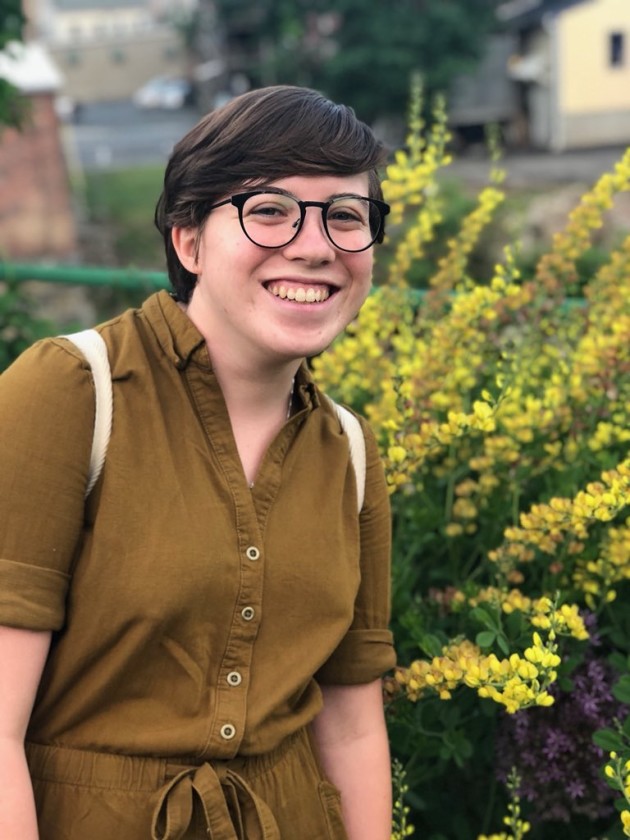
Rochelle, 22
I feel as though being Jewish prepared me for being queer. When I was a small child, I learned how to move through the world with my Jewish identity always present but semi-hidden, and how to gauge when was a safe time to reveal it. I hold my lesbian identity very similarly, though recently I have been struggling to find ways to make both more visible.
My Jewishness informs my queerness in my sense of curiosity, my need to feed and care for my friends, and my inability to stay quiet at injustice. My queerness informs my Jewishness in my desire to find new meanings in old traditions and texts and my use of ritual to heal. Queer Jewish role models such as Leslie Feinberg and Adrienne Rich have been important to me, and I also find strength and community in my queer Jewish friends.
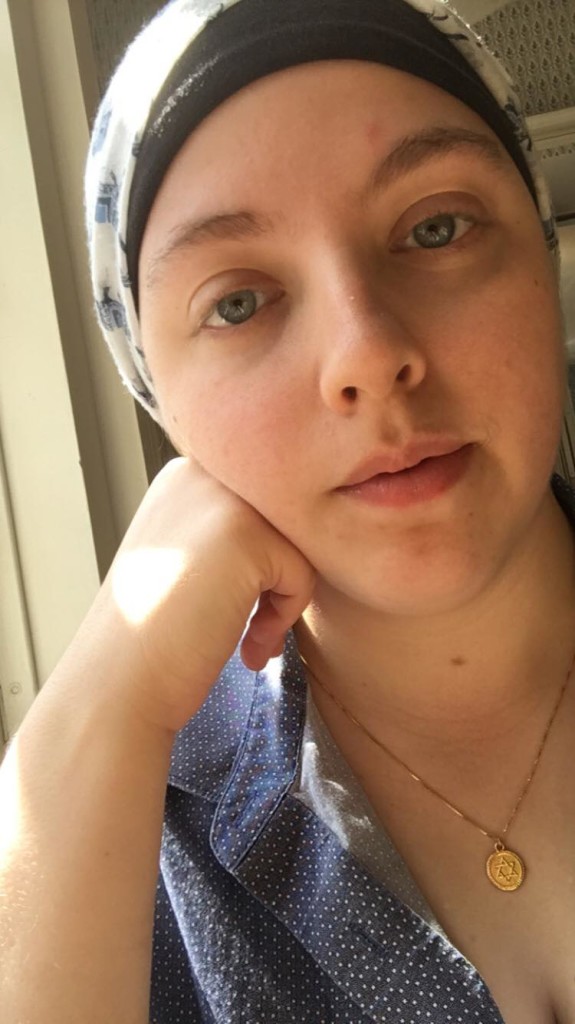
Zohar, 20
I came to terms with my Jewish identity and identity as a part of the LGBTQIA+ community about the same time, and I don’t think that’s a coincidence. I’ve found overwhelmingly that my identity as a Jew means I sometimes bring sometimes different experiences to the table when it comes to religion, culture, gender, and sexuality.
Sometimes this can be liberating: when I discovered that I was not beholden to Christian normative ideals of gender and sexuality, I used my Judaism to help fight my own internalized anti-semitism, transphobia, and homophobia.
Sometimes this can be alienating. It produces an entirely unique kind of mental and physical dysphoria on its own. Sometimes, this can lead to non-Jews witnessing my relationship with my religion and culture and perceiving it to obfuscate, rather than compliment my trans, non-binary, and bi identities.
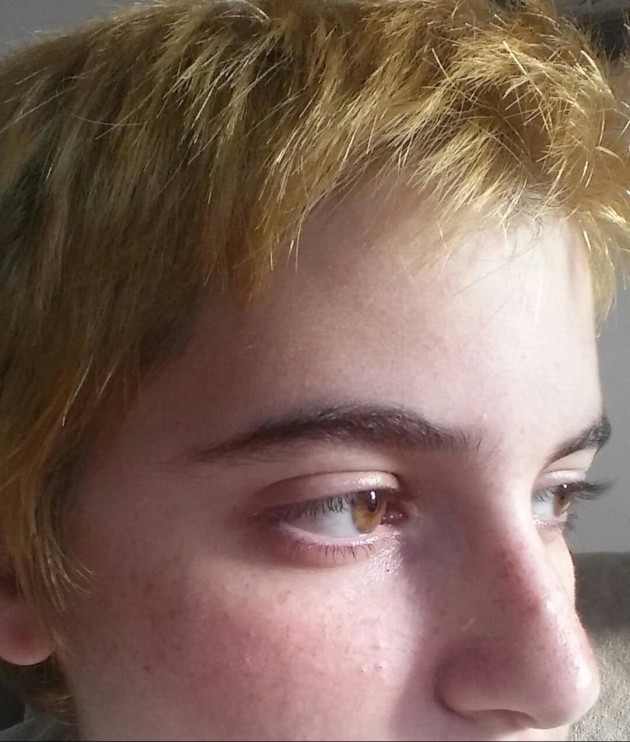
Roni, 20
I’m not sure what came first: the understanding that I’m Jewish, or that I’m part of the LGBTQIA+ community. Of course, I’ve always celebrated Hannukah with my quite secular family and felt the word “girl” didn’t reflect me, but it took me a while to find the right words and questions to ask.
While I’m still asking questions, I now am able to say that I identify with Conservative Judaism, tend to practice more as a Reconstructionist, and am non-binary and pansexual. There are a lot of similarities between the two worlds: a warm community, a long history of discrimination, a beautiful culture full of light and love, and an endless variety of ways to be a part.
I’ve never felt a clash because I believe in a God that created love. To me, gender is a social construct, not a heavenly one. I am this way because I should be this way, born in God’s image.
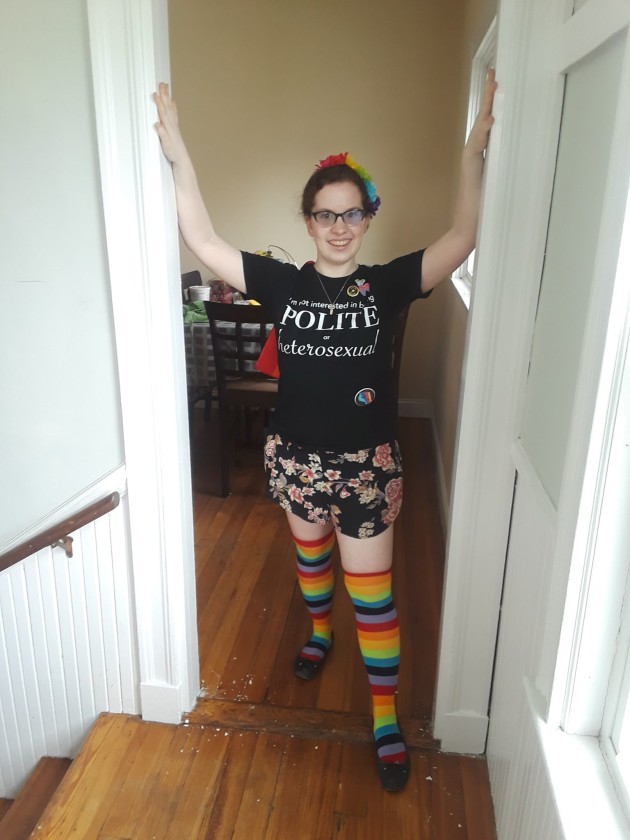
Julia, 21
The ways that I have come to know myself as a queer woman and as a Jewish woman have been very similar. In both cases, it’s been a process of learning to reject the assumptions about myself that I had been making all my life. I’ve felt so much joy in finding communities that let me celebrate all parts of who I am.
I didn’t choose to be Jewish any more than I could choose to be queer, but I think the important thing is that if I could have chosen, I would still choose to be the nice Jewish queer that I am.
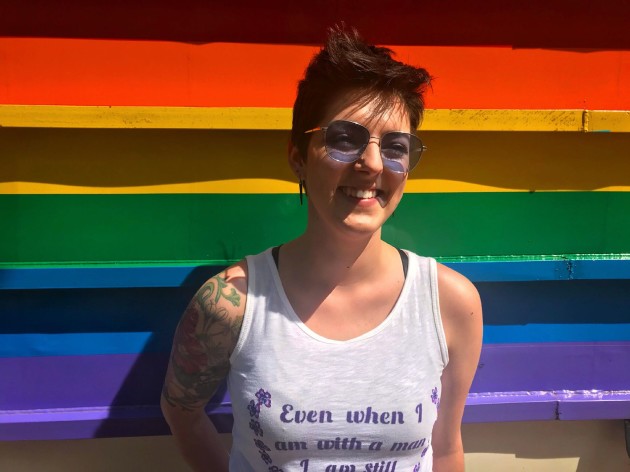
Melissa, 23
It’s easy to talk about my Jewish identity, since I’ve always been very openly Jewish. I grew up learning and embracing my people’s history and traditions. It’s been a part of who I am for as long as I can remember.
Being bisexual—that was new. I’d been unaware of a huge part of myself, I had no idea how to “be” bisexual. I came out while in a relationship with a man, so it felt like I wasn’t able to embrace this new identity. After awhile, I realized that there’s no checklist to being bisexual, just as I’m still Jewish even though I don’t keep kosher or go to temple every week. I know who I am and don’t need outside validation to be proud of it.
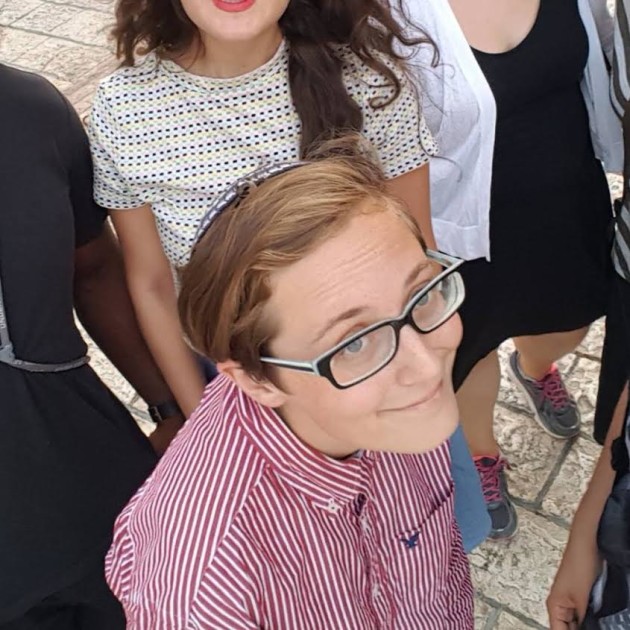
Eri, 22
Within the Torah, the phrase lo tov, or not good, appears only twice: in Bereshit (Genesis) 2:18 and in Shemot (Exodus) 18:17. Meaningfully, on both occasions, the phrase is used to decry a situation in which someone is taking action alone, apart from human community.
For the Torah, what is good for humans is for us to be with each other. We can find this truth expressed throughout Judaism: in celebration, in prayer, and in mourning, we are commanded to come together with and show up for our kehillah, the Jewish community.
For me, this is what Judaism is about. And, so too with queerness. For our victories, defeats, and the everyday moments in-between, I have known my queer communities to be a source of refuge, solidarity, and support. Thus, as a queer Jew, the place where these two identities intersect for me is in the communities we build on their foundations: in a world that often seeks to deny us that community, together we create a world for ourselves that is good and as God intended it to be.